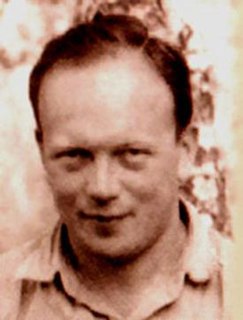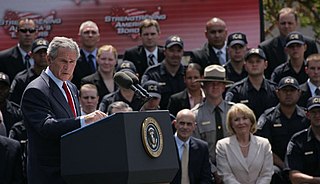Related Research Articles

In business theory, disruptive innovation is innovation that creates a new market and value network or enters at the bottom of an existing market and eventually displaces established market-leading firms, products, and alliances. The concept was developed by the American academic Clayton Christensen and his collaborators beginning in 1995, and has been called the most influential business idea of the early 21st century. Lingfei Wu, Dashun Wang, and James A. Evans generalized this term to identify disruptive science and technological advances from more than 65 million papers, patents and software products that span the period 1954–2014. Their work was featured as the cover of the February 2019 issue of Nature and was selected as the Altmetric 100 most-discussed work in 2019.

The MIT Sloan School of Management is the business school of the Massachusetts Institute of Technology, a private university in Cambridge, Massachusetts. MIT Sloan offers bachelor's, master's, and doctoral degree programs, as well as executive education. Its degree programs are among the most selective in the world. MIT Sloan emphasizes innovation in practice and research. Many influential ideas in management and finance originated at the school, including the Black–Scholes model, the Solow–Swan model, the random walk hypothesis, the binomial options pricing model, and the field of system dynamics. The faculty has included numerous Nobel laureates in economics and John Bates Clark Medal winners.
In-Q-Tel (IQT), formerly Peleus and In-Q-It, is an American not-for-profit venture capital firm based in Arlington, Virginia. It invests in high-tech companies to keep the Central Intelligence Agency, and other intelligence agencies, equipped with the latest in information technology in support of United States intelligence capability. The name "In-Q-Tel" is an intentional reference to Q, the fictional inventor who supplies technology to James Bond.
An Internet bot, web robot, robot or simply bot, is a software application that runs automated tasks (scripts) over the Internet, usually with the intent to imitate human activity on the Internet, such as messaging, on a large scale. An Internet bot plays the client role in a client–server model whereas the server role is usually played by web servers. Internet bots are able to perform tasks, that are simple and repetitive, much faster than a person could ever do. The most extensive use of bots is for web crawling, in which an automated script fetches, analyzes and files information from web servers. More than half of all web traffic is generated by bots.
The Technology and Engineering Emmy Awards, or Technology and Engineering Emmys, are one of two sets of Emmy Awards that are presented for outstanding achievement in engineering development in the television industry. The Technology and Engineering Emmy Awards are presented by the National Academy of Television Arts and Sciences (NATAS), while the separate Primetime Engineering Emmy Awards are given by its sister organization the Academy of Television Arts & Sciences (ATAS).
Technology forecasting attempts to predict the future characteristics of useful technological machines, procedures or techniques. Researchers create technology forecasts based on past experience and current technological developments. Like other forecasts, technology forecasting can be helpful for both public and private organizations to make smart decisions. By analyzing future opportunities and threats, the forecaster can improve decisions in order to achieve maximum benefits. Today, most countries are experiencing huge social and economic changes, which heavily rely on technology development. By analyzing these changes, government and economic institutions could make plans for future developments. However, not all of historical data can be used for technology forecasting, forecasters also need to adopt advanced technology and quantitative modeling from experts’ researches and conclusions.
The Chicago Innovation Awards was created by the Chicago Sun-Times and Kuczmarski & Associates in 2002. Each year the Awards recognize 10 Chicago area businesses, nonprofits, and government organizations that develop the year's most innovative new products and services.

Jonathan Greenblatt is an American entrepreneur, corporate executive, and the sixth National Director and CEO of the Anti-Defamation League (ADL). Prior to heading the ADL, Greenblatt served in the White House as Special Assistant to Barack Obama and Director of the Office of Social Innovation and Civic Participation.
A knowledge market is a mechanism for distributing knowledge resources. There are two views on knowledge and how knowledge markets can function. One view uses a legal construct of intellectual property to make knowledge a typical scarce resource, so the traditional commodity market mechanism can be applied directly to distribute it. An alternative model is based on treating knowledge as a public good and hence encouraging free sharing of knowledge. This is often referred to as attention economy. Currently there is no consensus among researchers on relative merits of these two approaches.
There are several approaches to defining the substance and scope of technology policy.

Eugene Lazowski born Eugeniusz Sławomir Łazowski was a Polish medical doctor who saved thousands of people during World War II by creating a fake epidemic which played on German phobias about hygiene. He also used his position as a doctor treating people travelling through a nearby train station to conceal his supply of medicine to Jews in the local ghetto, which backed on to his home. By doing this, he risked the death penalty, which was applied to Poles who helped Jews in the Holocaust.
Content is the information contained within communication media. This includes internet, cinema, television, radio, audio CDs, books, magazines, physical art, and live event content. It’s directed at an end-user or audience in the sectors of publishing, art, and communication. Live events include speeches, conferences, and stage performances. Content within media focuses on the attention and how receptive the audience is to the content. Circulation brings the content to everyone and helps spread it to reach large audiences. It is a process in which anyone who encounters any type of content will go through a cycle where they encounter the content, interpret it, and will continue to share it with other people.
Brian Steidle is a former Marine Corps captain, military and security operations expert, and author who had worked on publicizing the Darfur conflict in Sudan. Steidle wrote a book, The Devil Came on Horseback, about his experience, which was turned into a documentary film that premiered at Sundance in 2007.

Political communication is a subfield of communication and political science that is concerned with how information spreads and influences politics, policy makers, the news media, and citizens. Since the advent of the World Wide Web, the amount of data to analyze has exploded and researchers are shifting to computational methods to study the dynamics of political communication. In recent years, machine learning, natural language processing, and network analysis have become key tools in the subfield. It deals with the production, dissemination, procession and effects of information, both through mass media and interpersonally, within a political context. This includes the study of the media, the analysis of speeches by politicians, those that are trying to influence the political process, and the formal and informal conversations among members of the public, among other aspects. The media acts as a bridge between government and public. Political communication can be defined as the connection concerning politics and citizens and the interaction modes that connect these groups to each other. Whether the relationship is formed by the modes of persuasion, Pathos, Ethos or Logos.

Leopard Capital LP is a private equity fund manager specializing in frontier market investments. The Group is considered a pioneer investor in Southeast Asia’s Greater Mekong Subregion and the Caribbean.

Relativity Media is an American media company founded in 2004 by Lynwood Spinks and Ryan Kavanaugh. The company brokered film finance deals and later branched into film production and other entertainment ventures. The company was commercially successful prior to bankruptcy.

Douglas W. Clayton is an American venture capitalist. He is the founder and CEO of Leopard Capital.
William P. Levine was a United States Army officer. During World War II, he served in the US Army as an intelligence officer. Levine was among the first Allied Forces to enter the Dachau concentration camp in Germany. He would eventually rise to the rank of Major General. After the war, he was active in the Chicago Jewish community.
Media intelligence uses data mining and data science to analyze public, social and editorial media content. It refers to marketing systems that synthesize billions of online conversations into relevant information. This allow organizations to measure and manage content performance, understand trends, and drive communications and business strategy.
References
- ↑ Clayton Entertainment homepage
- ↑ "Life Preserver". Archived from the original on June 5, 2007.
- ↑ American Medical Association article
- ↑ Gentile, Carmen (February 20, 2010). "Cries for Help via Text Messages Are Used to Direct Aid to Haiti" – via NYTimes.com.
- ↑ "Cell Phones Become Lifeline for Haitian Survivors". VOA.